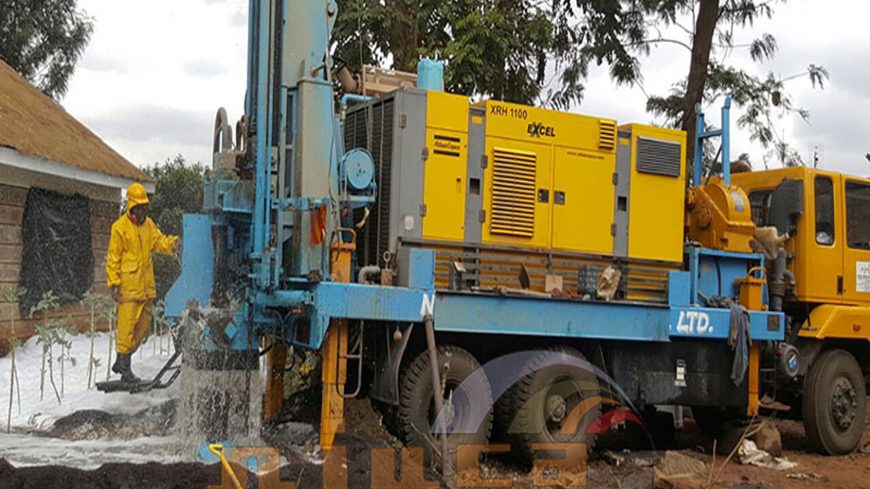Water Boreholes are essential in areas where a steady supply of clean water is unavailable. There are various reasons why boreholes are drilled, some of the reasons include for domestic use ,irrigation and industrial use.
In most Urban area settlements in kenya , ground water is the most suitable way to provide water for the residents since water from the local authorities is usually unreliable.
There has been a lot of misconception about borehole drilling in Kenya .Some of the misconception is that Borehole drilling is an expensive and complex venture whereby only a few developers with deep pockets can undertake.This is mainly attributed to lack of adequate information.
At Njuca Consolidated Co. Limited our borehole drilling services begins with a hydrogeological survey The survey is a requirement since it seeks to determine factors such as groundwater level and hydraulic characteristic .At Njuca Consolidated Co we boost a team of highly trained registered Geologist.
Once the survey is done and there are signs of water underground , The next process is to seek authorization in order for the drilling process to begin,.The authorization is obtained from the Water Resource Management Authority.This process is accompanied by an Environmental Impact Assessment .Once the National Environmental Management Authority Is satisfied about environmental standards being adhered to the drilling process can begin.
Steps in Borehole Drilling :
The following steps are involved in the borehole drilling process.
- Drilling of 11”until loose top formation and installing 9” temporary casing, then drilling 8” up torecommended depth.
- Casing: Installation of 6” casing pipe – Class – B ( 4.5mm thickness ) up to bottom. Generally ratio of plain casing and screen casing is 70:30 but depends on the hole drilled.
- Gravel Pack: Inserting 2-4mm natural gravel outside the casing and inside the open hole for artificial filtration.
- Development: This is done by air jetting until clean water emerges. Generally, this can take up to 3 hours but may vary with the hole.
- Well head Slab: This is done using cement, sand and gravel in proper ratios to prevent contamination of the hole.
- Capping: A cap is fitted over the hole until installation of pump.
- Test pumping: This is done to measure the exact yield of the borehole. The water needs to be pumped out continuously for 24 hours. It is then possible to tell the yield of the well, rest level and pumping water level. This is important in determining the size of pump to be installed. On the basis of test pump report, one can decide the pump installation depth, size of pump, motor, delivery pipe, cable, control panel, water meter and other sundries.
- Water chemical and bacteriological analysis is then done by government chemist to assess if the water is suitable for domestic/industrial use or not.
- Completion Report: A completion report is then filed with WRMA and a copy availed to the client.

